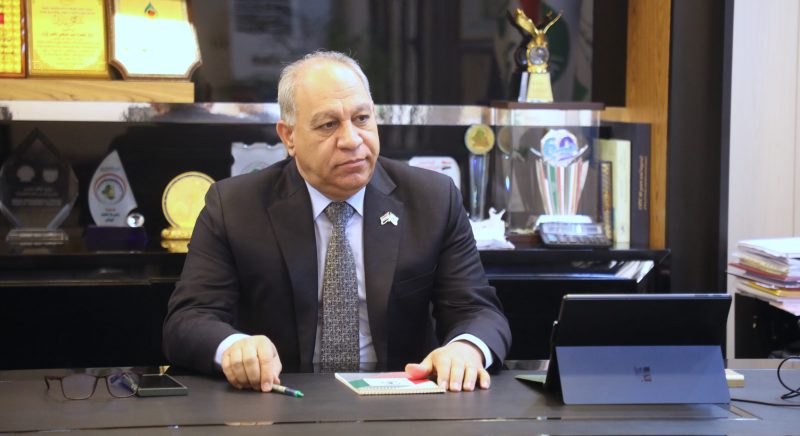Q&A: Hamza Abdul-Baqi, director general of the South Gas Company
Southern Iraq's top gas official gives detailed updates on associated gas capture projects that promise to boost electricity feedstock and reducing flaring.
KHOR AL-ZUBAIR - Gas is an urgent priority for the Iraqi government. The country currently produces massive volumes of natural gas along with crude oil, but over half of this so-called "associated gas" — some 18 billion cubic meters annually — is burned in a wasteful practice known as flaring.
There are many big incentives to reduce flaring. If Iraq could capture more associated gas, there would be more feedstock for power plants, lower demand for expensive gas imports from Iran, and reductions in the carbon and methane emissions that are major contributors to global climate change.
As the director general of the state-run South Gas Company (SGC), Hamza Abdul-Bazi is on the front lines of Iraq's efforts to capture more gas and reduce flaring. In an interview with Iraq Oil Report at the SGC's offices in Khor al-Zubair, in Basra province, he gave detailed updates on several major gas capture and processing projects.
Iraq is on the cusp of major progress. In total, ongoing projects could add over 700 million standard cubic feet per day (scf/d) of gas processing this year, which would increase the country's capacity by about 50 percent.
Those projects also face challenges. The Basra Gas Company (BGC), for example, is raising its capacity from 1 billion scf/d to 1.4 billion scf/d this year, but it also has not been receiving enough associated gas from oil fields to take advantage of its existing capacity.
A full transcript of the interview is available below for Iraq Oil Report subscribers.
Login to your account
Subscribe for news access
Annual News subscribers receive access to the full archive of Iraq Oil Report articles.





